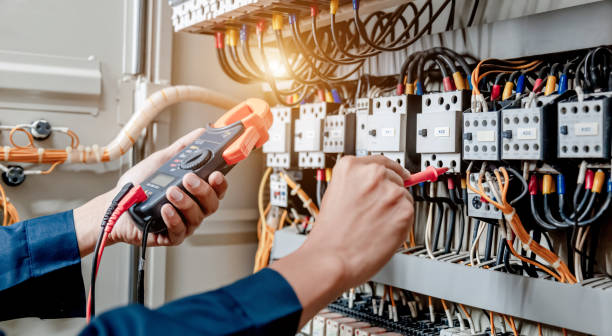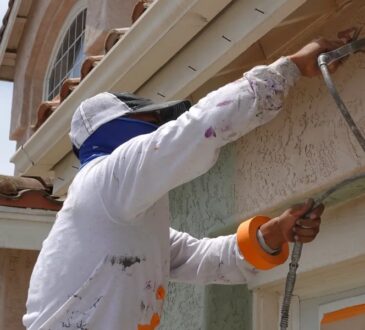
A Electrical Installation License is more than a legal requirement it is a safeguard for the modern city that hums with energy. In Singapore, where every building is stitched into the national grid and the demand for reliable power grows ceaselessly, the licence ensures that only qualified professionals may install, maintain, and inspect electrical systems. To hold such a licence is to stand at the threshold of trust between society and technology.
The Essence of Licensing
Licensing is not an arbitrary rule but a mechanism of safety and accountability. In biology, species flourish when systems of order preserve balance. In the built environment, the electrical installation licence functions much the same way. It sustains order by:
Validating competence
Only trained individuals with proven knowledge are granted the authority.
Protecting lives
Preventing fires, shocks, and system failures that can arise from poor workmanship.
Ensuring compliance
Aligning installations with strict national standards.
Promoting confidence
Giving the public assurance that systems are in safe hands.
One regulator noted, “Without proper licensing, the risks are multiplied not just for the worker but for the entire community.”
Who Needs an Electrical Installation Licence
In Singapore, the licence is required by those who wish to operate, maintain, or take charge of electrical installations. These installations may include:
- High-voltage switchgear and distribution systems
- Industrial machinery powered by electricity
- Large commercial building wiring
- Critical infrastructure networks
This requirement draws a line between casual, untrained handling of electricity and professional stewardship. The distinction is vital, for the dangers of mishandling power are as real as they are invisible.
Types of Electrical Installation Licences
Licences differ according to the size and nature of installations. Common categories include:
Low-voltage installations
Typically for smaller buildings and domestic premises.
High-voltage installations
Required for factories, refineries, or complexes that demand greater electrical capacity.
Temporary installations
Covering projects such as construction sites or large events.
By classifying licences in this way, the system mirrors ecological niches, where each organism plays a role suited to its capabilities.
The Path to Licensing
Acquiring an electrical installation licence demands rigorous preparation. The process includes:
- Meeting academic and professional prerequisites, usually in electrical engineering or equivalent qualifications.
- Accumulating hands-on experience under supervision.
- Passing examinations set by the regulator to test both technical skill and knowledge of regulations.
- Submitting applications with supporting documents and prescribed fees.
This journey, much like natural selection, filters out the unprepared, ensuring that only those with perseverance and ability succeed.
The Role of the Licence Holder
Once granted, the licence carries weighty responsibilities. A licence holder must:
- Operate and maintain electrical systems safely.
- Conduct inspections to identify potential faults.
- Keep thorough records of operations and maintenance.
- Respond swiftly to emergencies to minimise hazards.
It is not a token to be displayed but a mandate to act with diligence. One experienced practitioner explained, “A licence is a reminder that safety is not optional but integral to every circuit and connection.”
Consequences of Non-Compliance
Neglecting the rules around electrical installation licensing invites consequences far beyond administrative reprimand. These include:
Legal penalties
Operating without a valid licence can lead to fines or prosecution.
Operational risks
Unlicensed work often results in unsafe installations.
Reputational damage
Trust, once lost, is hard to regain.
Threats to life and property
The gravest cost of all.
Much like disturbing a fragile ecosystem, tampering with electrical systems without authority destabilises the whole.
Why Renewal Matters
Licences are not perpetual. Renewal ensures that professionals remain current with changes in standards, technologies, and safety requirements. The renewal process demands:
- Proof of continuous competence.
- Evidence of professional development where applicable.
- Payment of renewal fees.
- Adherence to deadlines to prevent lapses.
Renewal is not simply an administrative chore it is a reaffirmation of commitment to safety and professionalism.
Adapting to a Changing Landscape
As Singapore advances towards green energy and smart infrastructure, the responsibilities tied to an electrical installation licence evolve. Licence holders now engage with:
- Solar systems and renewable integration.
- Electric vehicle charging infrastructure.
- Intelligent monitoring systems that track energy consumption.
- Sustainability targets that reshape traditional methods of installation.
To stay relevant is to continue learning. As Edward O. Wilson observed of life itself, survival depends upon adaptability. Licence holders who adapt are not only custodians of the present but architects of the future.
Practical Guidance for Applicants
For those preparing to apply for an electrical installation licence, practical foresight is key:
- Keep records of qualifications and work experience in order.
- Seek mentorship from experienced professionals.
- Begin exam preparation early and focus on both theory and application.
- Set reminders for renewal well before deadlines.
In every system whether ecological or industrial foresight is the difference between collapse and continuity.
Conclusion
The electrical installation licence is both shield and standard, ensuring that Singapore’s progress is not shadowed by unnecessary risk. It affirms competence, demands accountability, and sustains public trust in the silent networks of power that shape modern life.
As cities grow taller and technology penetrates deeper into daily existence, the role of the licence holder becomes ever more critical. In this lies the enduring truth that safety is not an afterthought but the very foundation of advancement. And so, in every cable laid, every circuit checked, and every connection approved, the watchful presence of the electrical installation license continues to safeguard the nation.




